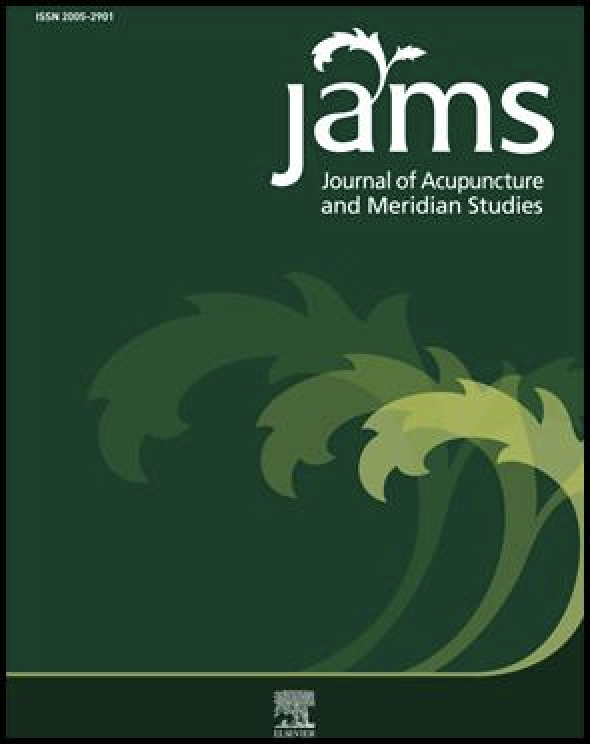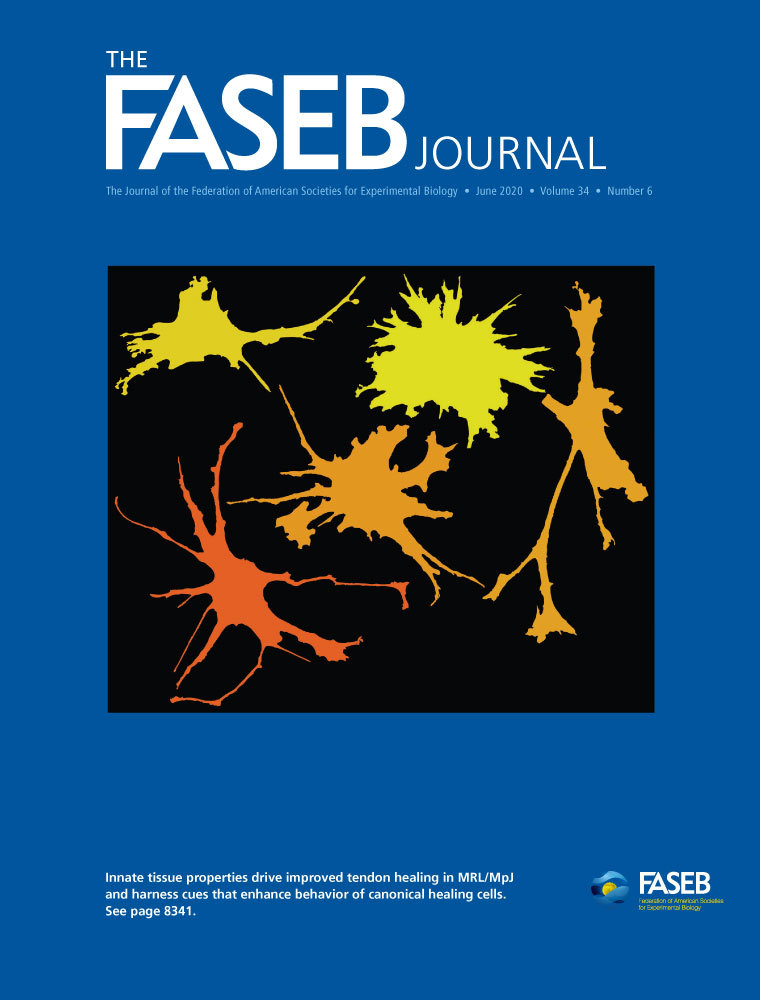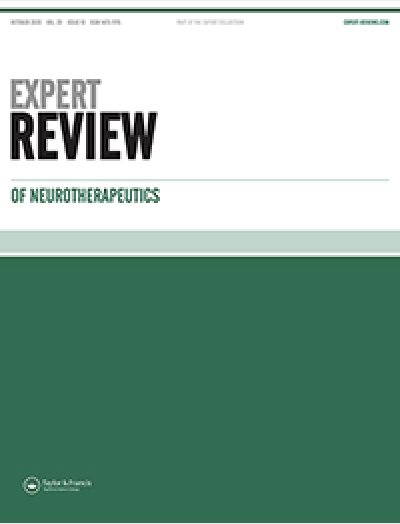Bipolar Disorder
How to submit an article:
- Registered users can submit any published journal article that has a unique DOI (Digital Object Identifier) name or link to Research Hub.
- For example, you can paste the full DOI link:
https://doi.org/10.1109/5.771073or just the DOI name:10.1109/5.771073into the field above and click submit. - The person who is first to submit a valid article to Research Hub will forever be credited for it, and every article submission earns you +6 Research Points.
Published research studies are articles that present the findings of original research that has undergone a peer-review process and has been made publicly available in scholarly journals, books or other media.

Effect of Acupuncture on Physical Symptoms and Quality of Life in Treatment-Resistant Major Depressive Disorder and Bipolar Disorder: a Single-Arm Longitudinal Study
2022 Dec 31 Journal of Acupuncture and Meridian Studies Matsuura Y, Hongo S, Taniguchi H, Yasuno F, Sakai T
Cohort Study Depression Bipolar DisorderAcupuncture shows promise in improving psychiatric symptoms, physical symptoms, and quality of life in patients with treatment-resistant mood disorders, highlighting its potential as a complementary therapy for these conditions.

Vitamin D and the omega‐3 fatty acids control serotonin synthesis and action, part 2: relevance for ADHD, bipolar disorder, schizophrenia, and impulsive behavior
2015 Feb 24 The FASEB Journal Patrick RP, Ames BN
Review Article Serotonin Omega-3 Fatty Acids Mental Health Vitamin D Impulsive Behaviour Schizophrenia Bipolar Disorder ADHDSerotonin function, influenced by vitamin D and omega-3 fatty acids, plays a critical role in neuropsychiatric disorders and certain behavioral functions.

Current evidence regarding the management of mood and anxiety disorders using complementary and alternative medicine
2014 Mar 06 Expert Review of Neurotherapeutics Anthony J Bazzan, George Zabrecky, Daniel A Monti & Andrew B Newberg
The systematic review showcase the efficacy of acupuncture in improving anxiety, depression and bipolar disorders. Patients reported to have reduced pre-procedure anxiety and anxiety disorders. The treatments were also found to have been beneficial with behavioral desensitization for anxiety neurosis.
Systematic Review Depression AnxietyResearch insights are moderated by the Research Hub team and offer an at-a-glance overview of interesting research findings.

2022 Journal of Acupuncture and Meridian Studies
Acupuncture shows promise in improving psychiatric symptoms, physical symptoms, and quality of life in patients with treatment-resistant mood disorders, highlighting its potential as a complementary therapy for these conditions.
Cohort Study Depression
Effect of Acupuncture on Physical Symptoms and Quality of Life in Treatment-Resistant Major Depressive Disorder and Bipolar Disorder: a Single-Arm Longitudinal Study
Matsuura Y, Hongo S, Taniguchi H, Yasuno F, Sakai T

2015 The FASEB Journal
Serotonin function, influenced by vitamin D and omega-3 fatty acids, plays a critical role in neuropsychiatric disorders and certain behavioral functions.
Review Article ADHD Impulsive Behaviour Mental Health Omega-3 Fatty Acids Schizophrenia
Vitamin D and the omega‐3 fatty acids control serotonin synthesis and action, part 2: relevance for ADHD, bipolar disorder, schizophrenia, and impulsive behavior
Patrick RP, Ames BN
Review Articles
Review articles summarise and critically evaluate the current state of research on a specific topic or field by synthesising multiple primary research studies.

Vitamin D and the omega‐3 fatty acids control serotonin synthesis and action, part 2: relevance for ADHD, bipolar disorder, schizophrenia, and impulsive behavior
2015 Feb 24 The FASEB Journal Patrick RP, Ames BN
Review Article Serotonin Omega-3 Fatty Acids Mental Health Vitamin D Impulsive Behaviour Schizophrenia Bipolar Disorder ADHDSerotonin function, influenced by vitamin D and omega-3 fatty acids, plays a critical role in neuropsychiatric disorders and certain behavioral functions.

Current evidence regarding the management of mood and anxiety disorders using complementary and alternative medicine
2014 Mar 06 Expert Review of Neurotherapeutics Anthony J Bazzan, George Zabrecky, Daniel A Monti & Andrew B Newberg
The systematic review showcase the efficacy of acupuncture in improving anxiety, depression and bipolar disorders. Patients reported to have reduced pre-procedure anxiety and anxiety disorders. The treatments were also found to have been beneficial with behavioral desensitization for anxiety neurosis.
Systematic Review Depression AnxietyClinical Trials
Clinical trials are research studies that involve people and are conducted to evaluate the safety and efficacy of new treatments or interventions, such as drugs, medical devices, or behavioural therapies.
Study Protocols
Published study protocols are detailed plans that outline the objectives, methodology, statistical analyses, and organisation of a research study that have been made publicly available for others to review and use as a reference.
Presentation Slides

Cohort Study
Acupuncture shows promise in improving psychiatric symptoms, physical symptoms, and quality of life in patients with treatment-resistant mood disorders, highlighting its potential as a complementary therapy for these conditions.
Matsuura Y, Hongo S, Taniguchi H, Yasuno F, Sakai T

Review Article
Serotonin function, influenced by vitamin D and omega-3 fatty acids, plays a critical role in neuropsychiatric disorders and certain behavioral functions.
Patrick RP, Ames BN
Executive Summary
Write an executive summary in the form of a blog article on the topic of "Research into Chinese medicine treatment for Bipolar Disorder" summarising the research below and using language that can be easily understood by patients and avoiding medical jargon using a professional and caring tone of voice.
Write an executive summary in the form of a blog article on the topic of "Researched Chinese medicine treatments for Bipolar Disorder" summarising the research below in an objective and easy to understand way, and using language that can be easily understood by patients. Group the article into Chinese medicine treatments first, followed by nutrition and other treatments. Avoid using medical jargon and use a professional and caring tone of voice.
Write me a concise but easy to understand executive summary on the topic of "Chinese medicine treatments for Bipolar Disorder" based on the following research that I will give you. Your summary should be 2 paragraphs long in Australian English spelling and include references to the studies.
A Cohort Study published in 2022 in the journal Journal of Acupuncture and Meridian Studies found that Acupuncture shows promise in improving psychiatric symptoms, physical symptoms, and quality of life in patients with treatment-resistant mood disorders, highlighting its potential as a complementary therapy for these conditions. This prospective study explored the effects of acupuncture on physical symptoms and quality of life (QoL) in patients with treatment-resistant major depressive disorder (MDD) and bipolar disorder (BD). After 12 weeks of acupuncture treatment, significant improvements were observed in psychiatric symptoms, physical symptoms, and various aspects of QoL. These findings suggest that acupuncture may be beneficial for both the physical and mental well-being of patients with treatment-resistant mood disorders, although further research is needed to validate these preliminary results.
A Review Article published in 2015 in the journal The FASEB Journal found that Serotonin function, influenced by vitamin D and omega-3 fatty acids, plays a critical role in neuropsychiatric disorders and certain behavioral functions. The paper synthesizes prior research into serotonin's role in managing various brain functions and behaviours, and how its dysfunction is commonly seen in conditions like attention deficit hyperactivity disorder, bipolar disorder, schizophrenia, and impulsive behavior. The researchers then put forward potential mechanisms showing the influence of vitamin D and the marine omega-3 fatty acids, eicosapentaenoic acid and docosahexaenoic acid, on serotonin synthesis, release, and function in the brain. Serotonin in the brain is synthesized from tryptophan by tryptophan hydroxylase 2, a process that is activated by a vitamin D hormone. Possible mechanisms proposed include eicosapentaenoic acid increasing serotonin release from presynaptic neurons by lowering E2 series prostaglandins, and docosahexaenoic acid affecting serotonin receptor action by increasing cell membrane fluidity in postsynaptic neurons. The study posits that suboptimal levels of vitamin D and omega-3 fatty acids, in combination with genetic factors at key developmental stages, could lead to dysfunctional serotonin activation and function – a possible underlying mechanism behind neuropsychiatric disorders and depression. The paper suggests that optimizing vitamin D and marine omega-3 fatty acid intake could potentially curtail and modulate the severity of brain dysfunction.
Moderation Tools
Topic
Sign In
Users not signed in are limited to viewing the 5 most recent items of content.